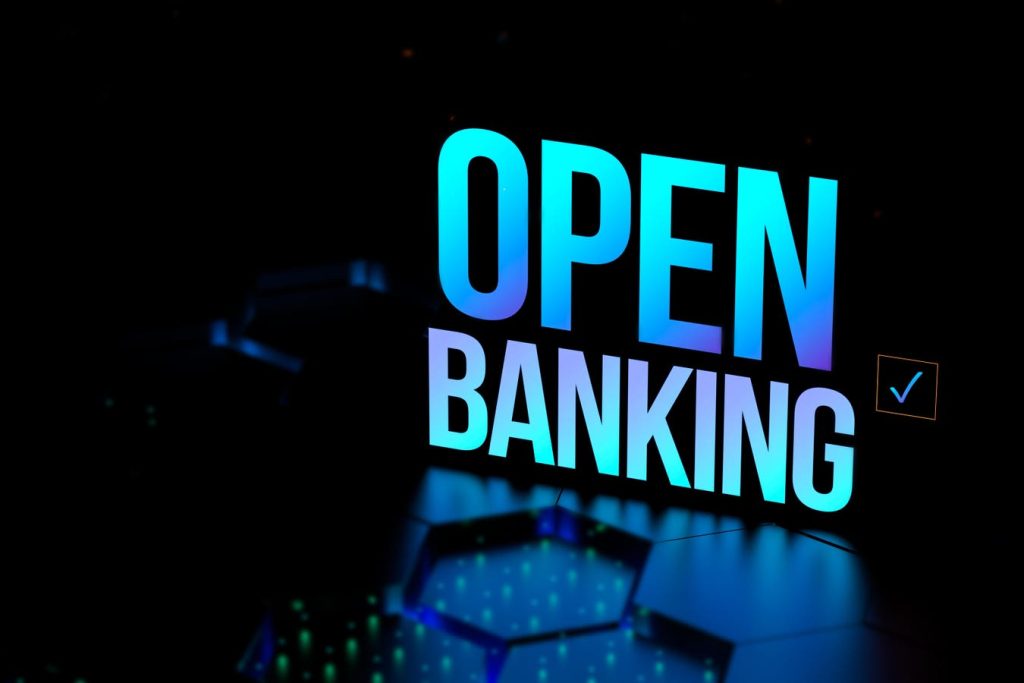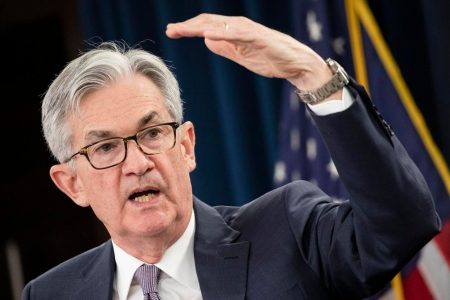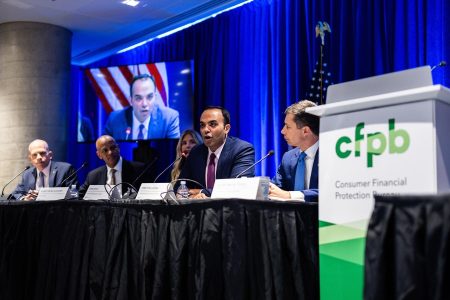Banks Are Finally Going to Have to Compete for Your Money
It’s about to get harder for banks to hold onto unsatisfied customers, and their money. It has long been a challenge for people to ditch the banks where they keep their checking accounts. But the first so-called open banking rules in the U.S. aims to change that. New rules finalized by the CFPB on Tuesday will require banks to simplify how customers transfer their data from one bank to another without losing their transaction and bill history. The aim of the regulations, formally known as 1033, is to empower consumers by giving them unprecedented control over their financial data, including who to share it with and when. As a result, customers will be able to direct their bank to move their account to a competing one with ease and use third-party applications with just the click of a button, all without paying a fee. [Quartz]
Apple and Goldman Sachs Ordered to Pay $89 Million over Apple Card Failures
When Apple announced it was launching Apple Card in 2019, it promised “a new kind of credit card” that was “designed to help customers lead a healthier financial life.” Now, government regulators say Apple and its partner Goldman Sachs caused harm to hundreds of thousands of cardholders by mishandling disputed transactions and by using deceptive marketing practices. The CFPB has ordered the companies to pay a combined $89 million in penalties and redress to those affected. The CFPB has also banned Goldman Sachs from launching a new credit card unless it provides “a credible plan” that the product will comply with the law. [NPR]
Credit Card Companies Now Charging Extra Fees for Paper Statements
A new push to move credit card users to a digital statement will now come with a penalty for those who don’t want to comply. Credit card companies from big name retailers have been silently rolling out a fee of $1.99 if you wish to keep receiving paper statements. One of the biggest offenders is Synchrony Bank, and they have co-branded and store-affiliated credit cards with over 100 cards in their lineup, which include Sam’s Club Credit Card, the Lowe’s Store Card, and the Amazon Store Card. In November of last year, Citibank released new guidance to its customers saying that going paperless was “now required to access your account on Citi.com and the Citi Mobile App.” There isn’t a law banning paper statements, however, but permission is required in order to start paperless billing. [Fox Business]
28% of Credit Card Users Are Still Paying Off Last Year’s Holiday Debt
For some shoppers, the upcoming holiday season may lead to significant credit card debt. Meanwhile, some people are still paying off debt from last year’s gift buying. In fact, 28% of shoppers who used credit cards have not paid off the presents they purchased for family and friends last year, according to a recent holiday spending report by NerdWallet. This year, spending between Nov. 1 and Dec. 31 is expected to increase again to a record total of $979.5 billion to $989 billion, according to the National Retail Federation. Shoppers may spend $1,778 on average, up 8% compared with last year, Deloitte’s holiday retail survey found. Most will lean on plastic: About three-quarters, 74%, of consumers plan to use credit cards to make their purchases, according to NerdWallet. [CNBC]
Discover Adds Apple Pay as Rewards Redemption Option
Eligible Discover cards have added a new redemption option, Pay With Rewards, that allows cardholders to redeem rewards almost instantaneously at checkout with Apple Pay. Rewards redeemed this way will post as a statement credit within 72 hours. This redemption option is only available for online and in-app purchases made on an iPhone or iPad. [NerdWallet]
Hallmark Has New Greeting Cards for the Lazy Gift Giver Who Cares
Hallmark announced new physical greeting cards that include digital gift cards inside. The “Gift Card Greetings” line means you can hand someone a real card, paired with the convenience of not needing to tape on an extra piece of plastic. It’s a little bit more personal than buying someone an e-gift card and having a code land somewhere in their email inbox. The gift card comes in the form of a QR code printed on the inside flap of Hallmark’s card that is used for both loading and redeeming its value. The new cards are an expansion of Hallmark’s other digital-gift-in-a-physical-card idea that lets you include cash via Venmo, so you don’t have to go to the ATM. [The Verge]
Mastercard Moves into Commercial Cross-Border Payment Solution for Banks
Mastercard introduced a new solution that will enable banks to facilitate commercial cross-border payments that are near real-time, predictable and transparent. The new Mastercard Move Commercial Payments is designed to simplify operations, optimize liquidity, reduce counterparty risk and provide end-to-end visibility for banks and their customers. Mastercard Move Commercial Payments aims to solve pain points like unpredictability and a lack of pricing transparency, helping banks and the businesses they serve capitalize on opportunities in cross-border transactions. For banks, the solution provides near real-time payments, settlement options, compatibility with existing correspondent banking arrangements between respondents and correspondents, and value-added services like risk control services and fraud analytics. [PYMNTS]
Credit and Debit Card Market Share by Network and Issuer
90% of American adults had a debit card and 82% had a credit card in 2023, according to the Federal Reserve Bank of Atlanta. Worldwide, nearly 1.3 billion Visa credit cards are in circulation, compared to 1.1 billion Mastercard credit cards. Bank of America had the largest debit card market share of any issuer in 2023, when measured by purchase volume: $468 billion. [The Motley Fool]
1 in 5 Americans Have Maxed Out Their Credit Card
Twenty percent of Americans who responded to a new survey from Bankrate have maxed out their credit card, with another 17% coming close to doing so. Three in ten who maxed out credit cards fell behind on payments. Bankrate asked credit card holders how close they had come to maxing out their credit cards since Federal Reserve interest rates increased in March 2022. Of the two groups, 54% blame inflation and high prices, 38% cite emergency expenses, and 32% name credit card debt or a balance as the reasoning. [News Nation]
Buy Now, Pain Later: the Looming Risks of BNPL
The big downside of Buy Now, Pay Later is the potential for debt to spiral because of its very frictionlessness. Unlike a credit card which will have a preset spending limit determined by your credit score, it is possible to rack up a theoretically limitless quantity of BNPL spending; it is not uncommon for the most spendthrift individuals to have several dozen overlapping loans from a range of providers. Unsurprisingly this makes it far more likely that BNPL borrowers will default, either on their BNPL loans themselves, or on other credit. According to a study by the Bank for International Settlements, US BNPL users had an overall credit delinquency rate of close to 18 %, compared with about 7% for non-BNPL users. [Financial Times]
Capital One SavorOne Card Rebrands as ‘Savor’ with a New $250 Welcome Bonus
One of Capital One’s most rewarding cash-back credit cards has a new name and look. As of October 22, the no-annual-fee Capital One SavorOne card has been rebranded as the Capital One Savor Cash Rewards Credit Card. The new Capital One Savor card has no annual fee and is open to applicants with good to excellent credit scores (670+). For a limited time, new cardholders can earn a $250 one-time cash bonus after spending $500 in the first three months of account opening. The cash-back rewards don’t stop with the welcome bonus, you’ll also earn 8% cash back on Capital One Entertainment purchases, 5% cash back on hotels and rental cars you book through Capital One Travel, 3% cash back on dining, popular streaming services, entertainment and at grocery stores (excluding superstores like Walmart and Target) and 1% cash back on all other purchases. [CNBC]
Read the full article here









